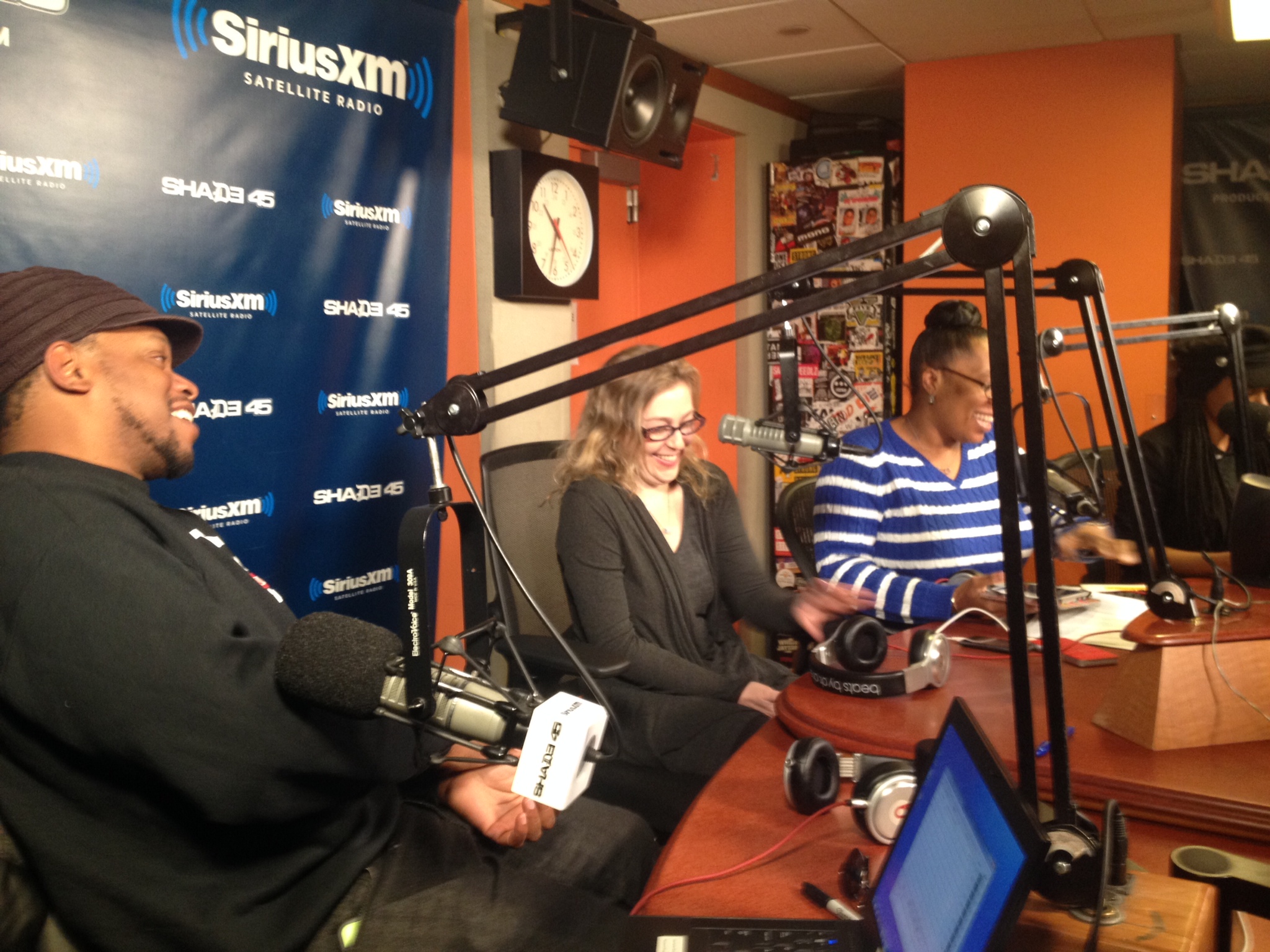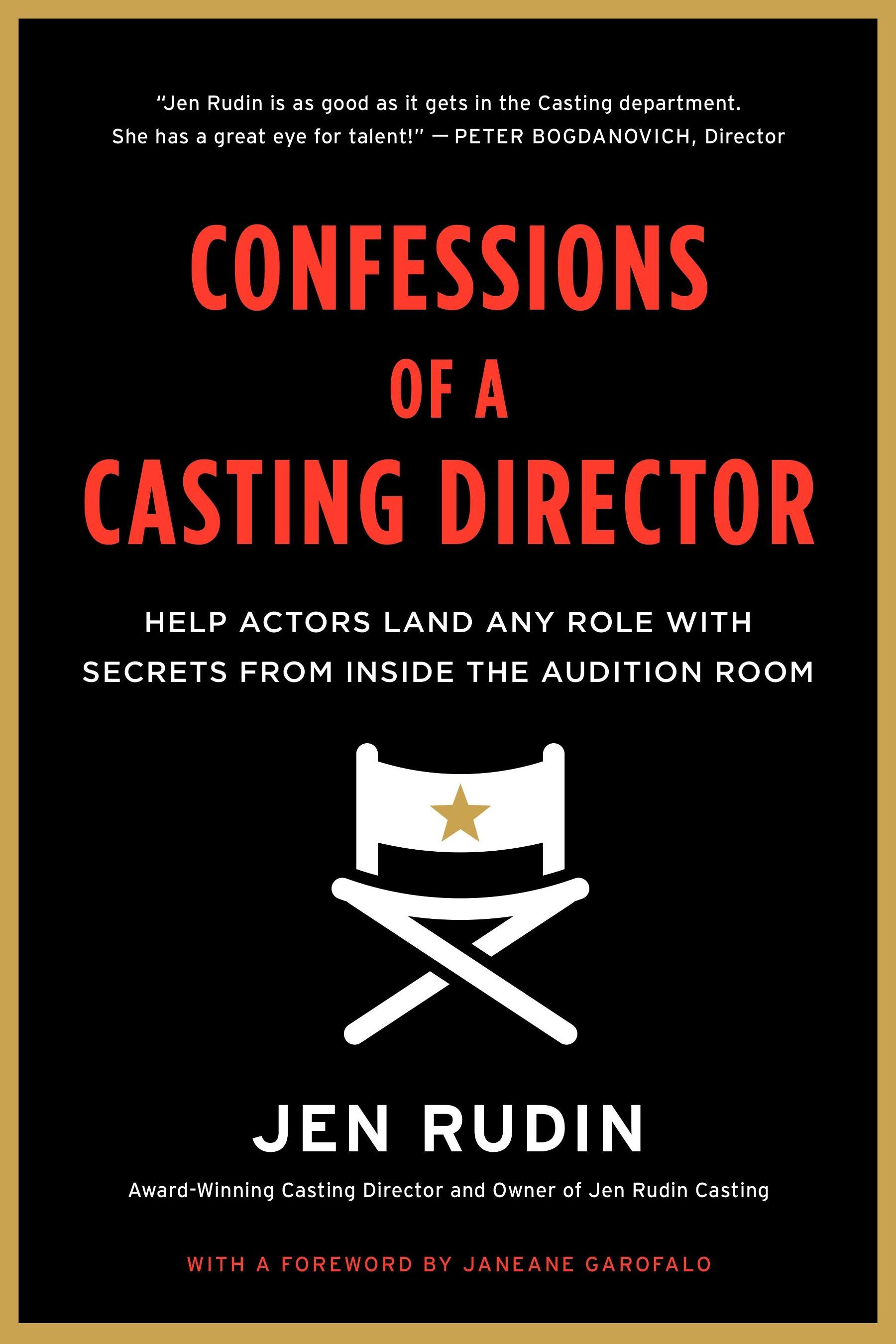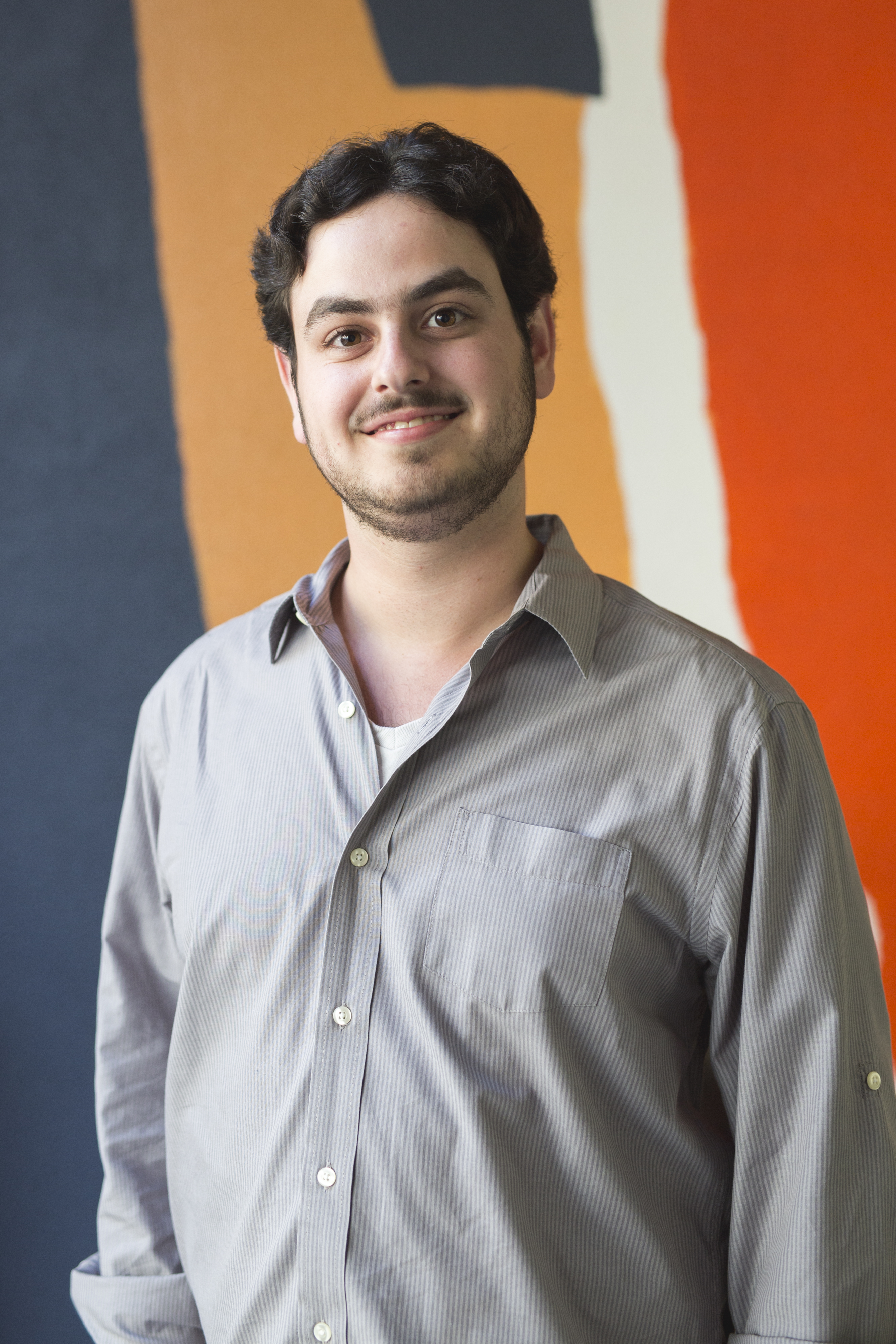Jen had aspirations as a child actor with a photographic memory starting as early as eight years old and eventually found a passion for casting. She interned with casting directors while attending the University of Wisconsin-Madison, where she graduated with a BA in History and Women’s Studies in 1994. She began working full-time in casting in 2000, and over the next 17 years has had a storied career working as a casting associate for Susan Shopmaker Casting where she helped cast Verizon’s “Can You Hear Me Now” campaign, working as a casting director for The Walt Disney Company and running her own company: Jen Rudin Casting. In 2014 she published a book called Confessions of a Casting Director, which talks about her experiences both as an actor and a casting director to help aspiring actors be better prepared for the auditioning process.
How long did you spend at Disney?
 I worked at Disney for seven years. I was moved from New York to Los Angeles in 2002 to take over the casting department for Disney Feature Animation, which was different because then I was an in-house casting director for a studio, so my job was exclusively at Disney. I could not take on other projects. I was there from 2002 to 2007, in charge of “The Incredibles,” “Chicken Little,” “Princess and the Frog,” “Brother Bear,” and I think we were doing “Meet the Robinsons” at the time.
I worked at Disney for seven years. I was moved from New York to Los Angeles in 2002 to take over the casting department for Disney Feature Animation, which was different because then I was an in-house casting director for a studio, so my job was exclusively at Disney. I could not take on other projects. I was there from 2002 to 2007, in charge of “The Incredibles,” “Chicken Little,” “Princess and the Frog,” “Brother Bear,” and I think we were doing “Meet the Robinsons” at the time.
In 2007 I was moved back to New York, and I was the head of casting and talent development for Disney Theatrical Productions, which is the Broadway division of the company. My job was to oversee and unify all the casting for all the Broadway shows we had, and the tours. Though nothing international, we had different casting directors for the international [shows].
Then in 2009 when the economy collapsed, I got laid off with some other folks. Literally the next day I opened up Jen Rudin Casting. My first job was doing casting for Disney Channel and for “Frankenweenie,” Tim Burton’s movie. It’s funny, my first freelance job after leaving Disney was for Disney, and I still do stuff for the Disney Channel now and again.
Besides the exclusivity, what are some of the other differences between working for a company and freelancing as a casting director?
There are a lot of differences. They have staff casting positions at some of the big companies like Sony, ABC, Warner Bros., any big entertainment company is likely to have in-house casting directors who are exclusively in charge of casting those projects. When you’re a freelance casting director, you can work for any of those companies. Since leaving Disney I’ve worked for Amazon, I’ve worked for Fox, I’ve worked for Universal. So as a freelance company you can work for different companies, but when you’re in-house exclusively for a company you have a contract and can’t work for anybody else because it’s a conflict. There’s pluses and minuses. I mean it’s really fun to be in-house because you have your own office and assistants, and if your computer breaks the computer guy comes. When you’re running your own company it’s completely different. I’m in charge of everything. If I want to work at home one morning I can, if I want to work at the office I can. It’s very different than having to show up for a nine-to-five job.
Do companies like Disney that have in-house casting directors still go to independent or freelancing casting companies?
They do, but it really depends. For example, if you’re an in-house casting director for ABC, there’s no way that you and your five people that work with you can do the actual casting for all those TV shows. They hire other casting directors who are in charge of casting a TV show, but there’s somebody at ABC casting who’s overseeing their work and watching the tapes and all that. That’s the corporate part of casting and it’s very different than sort of the hands-on “getting your hands dirty” in auditions, running auditions and whatever you do when you’re in the audition room doing the actual casting, not sitting in your office watching the tapes that come in every day.
What skills would you say are needed to be a casting director?
You have to really like people, because it’s so much about people. Your job is to fulfill the vision of the director and the writer of the project, so you’re trying to listen to them but you also have to listen to the producer. On a studio project you also have to listen to the studio casting director and the studio producers, so you’re answering to a lot of people. I feel like you have to be very much a diplomacy type of person, balancing all these different personalities. Even at Disney Animation I had a producer and director on every movie, and all those teams were different. So if I was working on five movies at once, I had five different sets of people I was managing. You have to love people, and it feels a little bit like retail because sometimes the casting session can have 55 actors a day coming in to audition. So you have to really be a people person, and you have to be super, super organized. I’m always maintaining a really tight schedule, so it’s not like every actor that comes in can just sit there and chat with me for a half an hour and then we do their scenes. You have to say hello, and then you have to do the audition. You also have to have a good memory and constantly be trying to find new actors. That’s why casting directors send their young assistants out to scout talent and go to shows because you have to constantly be getting your rolodex of actors current. We have to be up on current trends and who’s big on YouTube and who are the big comedians and all that.
What are the differences between casting for voiceover roles and live action roles?
They’re really different, which is why in my book I focus a chapter on all the different types of casting. Obviously with voice casting you don’t have the hair and makeup, and you don’t have the camera on you. It’s not about how you look, it’s about do you believably sound like the voice to come out of the squirrel? Do you sound like the right voice to come out of the animated drawing? So that’s really specific, and also when you’re casting voices you have to make sure to play them next to each other to make sure that not everybody has the same timbre to their voice. Then when you’re casting live actors you’re thinking about how people look together, do people believably look like a family and stuff like that. So a lot of live action casting is really like how you look next to the other actors in the project while voice acting is how do you sound next to somebody else.
What is it like working with someone else’s vision (for characters) and trying to make their idea come to life?
I mean, that’s your job. You can bring your own taste and vision and bring in actors that may not fit the description of who they think they want (and often times that’s the case), but your job is to cast their project. If they say they want a funny Melissa McCarthy type of actor, then it’s my job to find the next Melissa McCarthy or Jack Black.
But often times they think they want something and it ends up being completely different. I think for Grey’s Anatomy, Kristin Chenoweth was originally who they wanted to play Shandra Wilson’s role of Dr. Miranda Bailey.
Things always change in casting. Genres change a lot of the time, ethnicities can change, age can change as the writers are trying to figure out who’s set for the role. Sometimes things are not set in stone, is what I’m trying to say. The vision can change and my job is to try and have their vision and dream come true, but also to get them to consider other options as well.
You have to do it in a very delicate way, you can’t shove your opinion down their throat because then they’re going to think you’re a very bossy casting director. You have to be collaborative. That’s the biggest, biggest advice I can give: You have to collaborate.
How easy is it to collaborate with so many different voices at play?
It’s really hard to say. Sometimes it’s like a dream and everyone gets along famously, and sometimes you’re in a situation like one time when I was on this movie where the director stopped talking to the producer and the producer stopped talking to the director, and they would call me at the same time. That’s what I mean when I’m talking about diplomacy: how do I manage the expectations of what the director wants and what the producer wants when they both don’t like each other?
But that’s what it’s like for any job you’re on, not just for casting. That’s any environment you’re working in, you constantly have to work with people, unless you’re a writer writing a novel and you’re working from home. You have to work with people and you have to collaborate, which means you have to have good communication skills and be a good listener and lean in and see what they need.
There’s absolutely no one way it’s ever done, every single project I’ve worked on is very different.
Do you have any favorite stories from your experiences casting over the years?
Every casting story is different. Sometimes if you’re casting an indie film, and I’ve done lots and lots of them, a lot of times that’s about financing the movie. Financing the movie only happens when you have stars, so that’s when you’re chasing down stars. But most casting processes are really just about trying to find the best actor for the role. A lot of that also depends on timing and depends on everybody weighing in and having a vote at the end of the day.
I have a lot of great casting stories where you’ve cared about somebody over the years and watched them grow and change and suddenly they’re ready, then they have the big part. Those are the nice casting stories, where you’ve been tracking an actor and keeping tabs on them for a few years and suddenly they’re grown up and ready to take on a role that’s exciting.
Then sometimes, and I think I talk about this a little in the intro to my book, casting that little five-year-old in the movie “Mama” because she happened to look like a younger version of the girl we were looking to cast. She gets this big movie right before Thanksgiving and gets to go to Toronto, isn’t that exciting? It’s nice when it happens to a five-year-old and it’s nice when it happens to someone who’s been in the business a long time and gets their big break.
Those success stories are certainly what makes the job worth it, but I don’t want to glamorize what casting is at all. A lot of people think it’s really glamorous, you know like ‘Oh Steven Spielberg is in your office and you’re auditioning actors.’ A lot of the work is making lists, checking actor availabilities to see if they’re available for the shoot days and auditioning hundreds and hundreds of people before you finally have five that you want to show to the director. It’s really rigorous work, watching tons and tons of tapes.
Why did you want to write your book, Confessions of a Casting Director?
 I was actually at Disney at the time, in the Broadway division, and I was on a ten-city trip looking for a new mermaid for “The Little Mermaid.” I saw so many little girls making mistakes at their auditions and I started taking notes. My notes were really simple things, like if they had worn a different dress or chosen a different song. I went to talk to Tom Schumacher [Editor’s note: Thomas Schumacher is the President of the Disney Theatrical Group], who was my boss, and I said I think I want to write a book because there’s no time actually during auditions to give people advice and people need advice.
I was actually at Disney at the time, in the Broadway division, and I was on a ten-city trip looking for a new mermaid for “The Little Mermaid.” I saw so many little girls making mistakes at their auditions and I started taking notes. My notes were really simple things, like if they had worn a different dress or chosen a different song. I went to talk to Tom Schumacher [Editor’s note: Thomas Schumacher is the President of the Disney Theatrical Group], who was my boss, and I said I think I want to write a book because there’s no time actually during auditions to give people advice and people need advice.
He thought it was a great idea, so I started to write while I was at Disney and I worked on my proposal. Writing a book is a whole other conversation that we don’t have time to get into now, but I really wanted to write a book to help actors who were coming in and making big mistakes in the audition room. Simple things like coming in messy, talking about traffic or the subway, saying they haven’t finished the script yet or not being prepared for the audition.
So, my book is very friendly and really a how-to because I wrote it for the actors to just come in and be better prepared for their auditions. I share a lot of information there because they deserve it and nobody really explains these basic things they can do.
What would you say are the most rewarding aspects of your career?
I think it’s definitely when you, like I did with Anika Noni Rose in “Princess and the Frog,” get to be on a conference call when the actor’s agent or manager told them that they got the part. That’s the fun part. When you truly get to feel like you’re making an actor’s dream come true, that’s amazing.
When you see your name at the end of a movie in the credits, that’s always exciting too I think. I worked on Peter Bogdanovich’s movie (“She’s Funny That Way”) and I remember going to the premiere in Los Angeles, seeing my name, single card at the end with all the other credits and it just says “casting by Jen Rudin.” It’s like ‘oh wow there’s my name,’ so that’s cool.
Seeing your name, knowing you worked hard and then being able to tell an actor that they got the part. Really, really, really good. Really fun.




